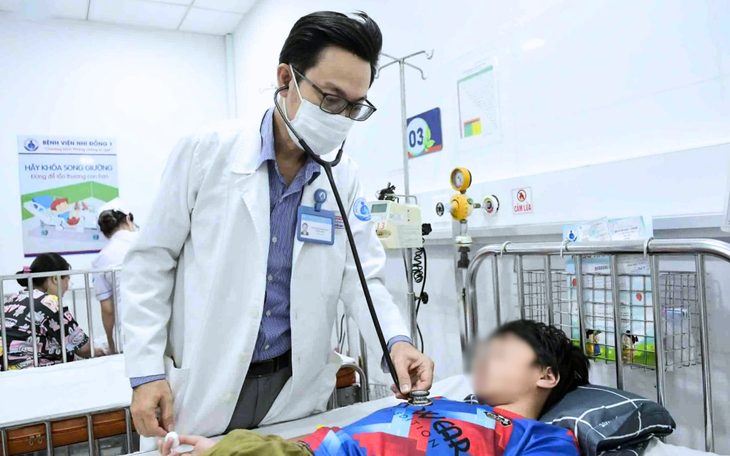
Children get medical examination at Children's Hospital 1, Ho Chi Minh City - Photo: DUYEN PHAN
When a child is sick, especially with a cold or flu, parents are often very worried and do not know how to care for them properly. Some home care measures can help your child recover quickly, reduce discomfort and prevent complications.
1. Let your baby rest fully.
Rest is the simplest but most effective way to help your baby recover quickly. This is also
This is why parents should keep their children at home when they are unwell, especially if they have a fever and should not send them to school. This is not only good for their health but also helps to limit the risk of infection.
If your child is not sleepy, you can relax by reading a story, flipping through a children's magazine or watching a favorite movie. It is important that your child does not move too much. Once the fever has passed and your child feels better, it is time for him to return to school.
2. Supplement water properly for your baby
Give your baby water, milk or formula to keep him hydrated. Don't forget soups - they're easy to eat and help him recover.
3 Identify cold or flu?
Colds and flu have similar symptoms and can be difficult to tell apart. If your child has the flu, he or she will often feel much more tired and can go from feeling well to feeling lethargic very quickly. Common symptoms include fatigue, chills, muscle aches, headaches and high fever.
If you suspect your child has the flu, take him or her to a medical facility immediately. Certain medications may help if given within 1-2 days of the onset of symptoms.
4 Help your baby feel comfortable when he has a fever
Fever is an important body defense response to help fight infection and disease. However, this condition can make your baby uncomfortable. When your baby has a fever, he or she will feel more comfortable if he or she wears loose, light clothing and stays in a cool room. Parents can also place a cool towel on the forehead and back of the neck to help the baby feel more comfortable.
Children do not always need fever-reducing medicine. However, paracetamol or ibuprofen can be used if needed. Consult your doctor before giving any medicine to children under 2 years of age, and always follow the dosage instructions.
Ibuprofen should especially not be given to children under 6 months of age.
5 What should parents pay attention to when giving their children cold medicine?
For children under 4 years old, home care is still the safest and most effective option. Most cold medicines are not suitable for this age group. After 4 years old, if you want to use medicine, parents should consult a doctor and read the instructions carefully before giving it to their children.
Be careful not to give children medications intended for adults, do not give children aspirin, and avoid using multiple medications that contain the same ingredient at the same time.
6 Help clear your baby's stuffy nose
If your baby has a stuffy nose, you can use a rubber bulb nasal aspirator to remove mucus. Before suctioning, put 2-3 drops of warm water or saline solution into each nostril, wait about a minute for the mucus to soften, then it will be easier to suction.
In addition, parents can raise the head of the mattress or bed about 7-10cm to help the baby breathe easier. Using a humidifier or a cool steam machine can also help relieve nasal congestion. If the skin under the baby's nose is red from frequent cleaning, apply a thin layer of Vaseline to soothe and protect the skin.
7 Soothe a sore throat
When your child has a sore throat, think "hot" and "cold." Hot and cold foods can help. Cold foods like milkshakes, cool water, or yogurt can soothe a sore throat. Warm foods like soup, tea, or hot apple juice can help soothe a sore throat.
For children aged 8 and over, rinsing their mouth with warm salt water twice a day can also help them feel more comfortable. In addition, parents can consider using common pain relievers such as paracetamol or ibuprofen to help reduce their child's discomfort.
8 Soothe your baby's cough
Should you treat your baby's cough? This depends on the age and the level of discomfort the cough causes your baby. Because coughing is a natural reaction of the body to help children expel irritants from the respiratory tract, helping to clear the respiratory tract and maintain lung function. However, if coughing a lot causes your baby to lose sleep and feel tired, parents should pay attention to care.
For children from 6 months to 1 year old: you can give them warm, clear drinks such as diluted apple juice, diluted lemon juice or filtered water.
Children over 1 year old: honey is a natural "medicine" that helps reduce nighttime coughs.
Children 6 years and older: can suck on cough drops or hard candy to soothe the throat.
9 Prioritize soft, easy-to-eat foods
When sick, children often lose their appetite. But parents should not worry too much. The most important thing is to feed your baby when he feels hungry. Soft, easily digestible foods will make your baby feel more appetizing and easier to eat when he is unwell. Parents can prepare mashed apples, oatmeal, mashed potatoes or yogurt for your baby. Besides, if your baby does not want to eat much, do not force him, just feed him little by little but many times a day to provide the necessary energy and nutrients.
10 Treatments for babies with digestive disorders
Children with the flu sometimes vomit or have diarrhea. This can cause the child to lose a lot of water. Parents should give their children small sips of electrolyte solution or water.
Avoid giving your child fizzy drinks, fruit juices, or sports drinks, as these can make diarrhea worse. If your child drinks too little or not at all, urinates less, or seems more tired, seek medical attention.
For children with diarrhea but not dehydrated or vomiting, parents can still feed them normally. Just feed them smaller meals and give them more water to make up for the loss.

Children get medical examination at Children's Hospital 1, Ho Chi Minh City - Photo: DUYEN PHAN
Listen to your parents' intuition
If you are concerned or your child's symptoms are getting worse, don't hesitate to talk to your doctor. Look out for warning signs such as chest pain, abdominal pain, shortness of breath, headaches, unusual tiredness, or increasing pain in the face and throat.
Parents should also take their child to see a doctor immediately if the child has a fever of 39.5°C or higher, or a fever of 38.3°C lasting more than 72 hours. The child has difficulty swallowing, a cough with a lot of phlegm, swollen glands, or earache.
Source: https://tuoitre.vn/cam-nang-can-thiet-cho-cac-me-bim-sua-10-cach-cham-tai-nha-khi-con-benh-20250921224119714.htm












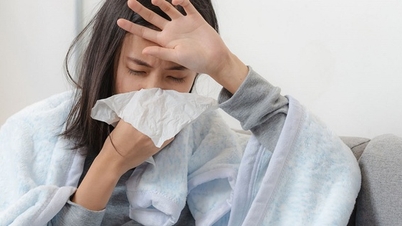






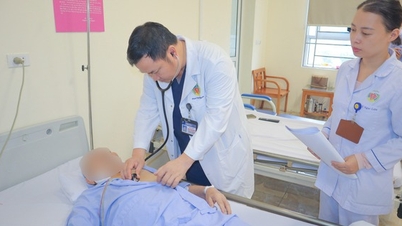

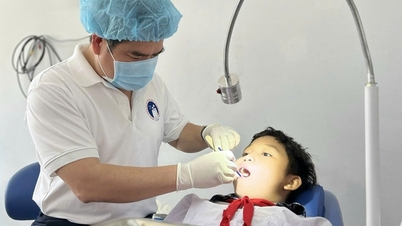












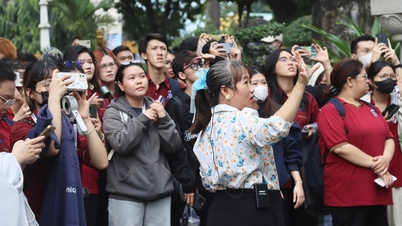







































































Comment (0)